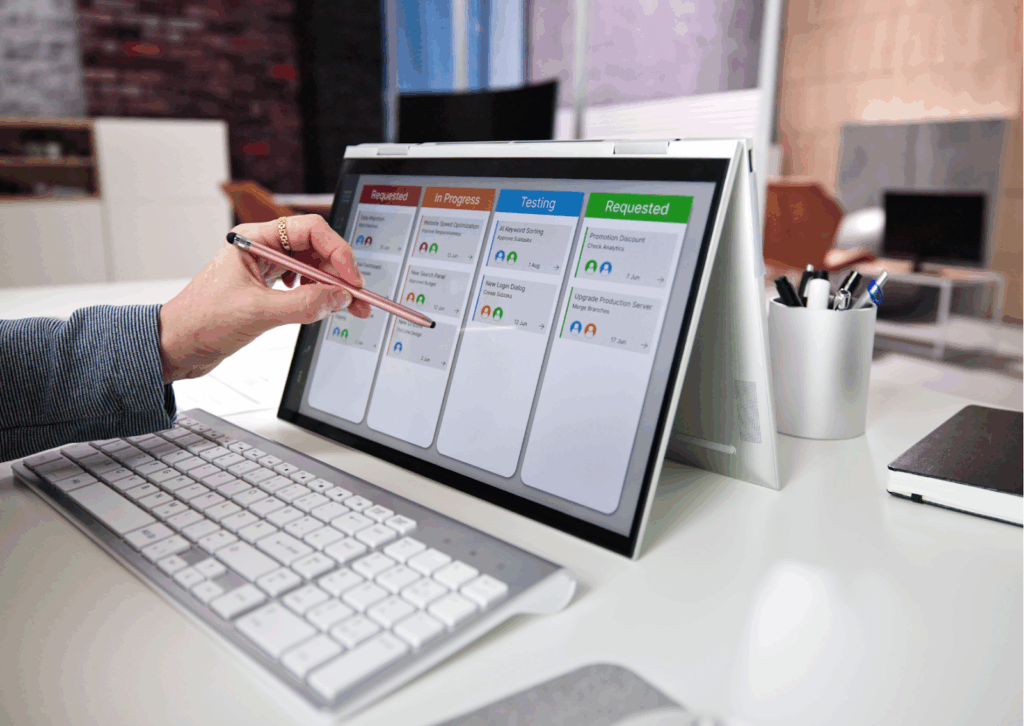What Role Does a Contractor Foreman Play in Construction Projects?
A contractor foreman acts as the on-site leader who ensures that construction teams meet deadlines, follow safety protocols, and complete tasks according to specifications. Their responsibilities range from supervising daily activities and coordinating resources to communicating with project managers and clients. Essentially, the foreman bridges the gap between field operations and office-based planning.
Given their pivotal role, contractor foremen require efficient tools and systems to manage complex workflows, track progress, and maintain accurate documentation. One of the most effective modern solutions to support these efforts is software in construction management. By adopting digital tools tailored to construction workflows, foremen can better coordinate teams, reduce errors, and complete projects more efficiently.
Why Is Construction Management Software Important Today?
Modern construction projects are multifaceted, involving multiple teams, subcontractors, and tasks happening simultaneously. Without the right construction management software, delays, budget overruns, and miscommunication are common.
These platforms serve as central hubs, helping teams manage budgets, resources, schedules, and documents efficiently. They improve visibility, coordination, and control over every aspect of the project.
According to McKinsey & Company, digitization and construction software solutions can increase productivity by 14–15% and reduce construction costs by up to 6% (McKinsey, 2017).
How Does Software Streamline Project Management for Foremen?
Project management software simplifies construction project oversight in the following ways:
- Centralized task tracking: All assigned responsibilities are visible in one dashboard.
- Automated scheduling: Adjustments and conflicts are flagged automatically.
- Real-time communication: Teams can share updates instantly via mobile devices.
- Integrated timelines: Project milestones are tracked for better accountability.
When contractor foremen use a construction project management software system, they can oversee field operations while maintaining alignment with the larger project goals.
How Does Schedule Management Improve Field Coordination?

Schedule management is essential for ensuring that every phase of the construction project progresses on time. Foremen must juggle trades, deliveries, inspections, and more, making real-time access to schedules vital.
Management tools with schedule management features allow foremen to:
- Monitor timelines in real time
- Reassign or delay tasks without manual confusion
- Notify teams instantly of updates or delays
- Sync subcontractors and suppliers with the latest project milestones
According to Dodge Data & Analytics, projects that use digital scheduling tools report fewer delays and more on-time completions (Dodge, 2021).
What Role Does Document Management Play in Construction Efficiency?
Managing construction documents manually leads to misplaced files, outdated plans, and costly rework. A reliable document management system reduces these risks by digitizing and organizing project paperwork.
Construction software with document management capabilities provides:
- Version control: Ensures teams are working from the latest plans
- Secure access: Field teams can retrieve and update documents from any device
- Audit trails: Tracks changes and access history
- Photo documentation: Logs site progress visually
This improves collaboration and minimizes delays due to miscommunication or missing documents.
How Does Construction Software Support Estimating and Budget Management?
Estimating software tools help foremen and project managers prepare accurate cost forecasts and track spending throughout the construction project lifecycle.
Key benefits include:
- Automated cost calculations: Reduces human error
- Budget tracking: Monitors expenses in real time
- Change order management: Adjusts estimates as scope evolves
- Resource allocation: Matches labor and materials to available funds
A 2020 report by Autodesk and FMI found that poor data cost the global construction industry over $1.8 trillion in rework, delays, and poor decisions. Reliable estimating and budget management features help avoid these costly setbacks.
What Features Should Contractor Foremen Look for in Construction Management Software?
When selecting software solutions, contractor foremen should prioritize tools that:
- Integrate field management and office workflows
- Offer mobile accessibility for on-site updates
- Include schedule and budget tracking features
- Provide document and photo management tools
- Enable communication between subcontractors and teams
A robust management suite that combines these functions can dramatically improve productivity and reduce manual coordination efforts.
How Does Cloud-Based Software Enhance Collaboration?

Cloud platforms offer real-time collaboration between field teams, project managers, and stakeholders. This removes the friction of email chains and paper-based updates.
Benefits of cloud-based construction management software include:
- Instant access to updates from any device
- Automatic data backups
- Role-based access for secure collaboration
- Integrated logs and documentation
Foremen on-site can share progress photos, task updates, and material requests instantly, keeping everyone informed without delays.
Can Construction Software Improve Safety and Compliance?
Yes. Digital tools help ensure that safety protocols and regulatory standards are consistently applied on the job site.
Features that support compliance include:
- Daily safety checklists and incident logs
- Digital inspections and audits
- Real-time alerts for hazards or overdue certifications
- Documented proof of training and safety meetings
With rising safety regulations, maintaining accurate logs and reports is crucial for avoiding fines and ensuring worker well-being.
How Can Foremen Use Software to Manage Subcontractors and Teams?
Field management features allow foremen to:
- Assign tasks by crew, skill, or availability
- Track time and attendance
- Monitor task completion in real time
- Communicate directly with subcontractors
Foremen can manage workflows without physically checking each site, which is especially helpful for large or multi-site projects. With integrated platforms, all updates are centralized and time-stamped.
What Is the Best Way to Implement Software in Construction Management?
Implementing new software in construction management is most successful when approached with a clear strategy:
- Assess needs: Determine what problems need solving—e.g., delays, miscommunication, budget overruns.
- Select the right platform: Choose a solution that fits your company’s size and project types.
- Train all users: Ensure everyone from office staff to on-site foremen understands how to use the tools.
- Start with a pilot: Run a small-scale test before full rollout.
- Measure impact: Monitor KPIs like time saved, budget adherence, and fewer errors.
Successful software adoption requires commitment but pays off in improved coordination and productivity.
How Can You Get Started with a Reliable Construction Management Platform?
If you’re ready to simplify workflows, boost productivity, and cut costs, choosing the right construction project management software is key. We recommend exploring the features and benefits offered at Projectler.
Their platform is designed to meet the specific needs of contractor foremen, managers, and teams, covering everything from scheduling to document management, resource coordination, and more.
Start streamlining your construction processes today. Visit Projectler to learn how their software in construction management can help your projects run smoother from start to finish. Request a demo today!
What’s the Final Verdict on Construction Management Software for Contractor Foremen?
Contractor foremen play a central role in construction project success. But without the right digital tools, they often face communication breakdowns, scheduling issues, and document chaos.
Construction management software, especially solutions that include document management, field coordination, and schedule management, empowers foremen to lead more efficiently. By connecting the field with the office, software solutions provide clarity, control, and confidence.
As the construction industry continues to evolve, adopting the right management tools isn’t just a convenience—it’s a necessity.
Works Cited
Autodesk and FMI. “Harnessing the Data Advantage in Construction.” Autodesk Construction Cloud, 2020, https://construction.autodesk.com/resources/ebook/data-advantage-in-construction/.
Dodge Data & Analytics. “The Drive Toward Healthier Buildings 2021.” Dodge Construction Network, 2021, https://www.construction.com/toolkit/reports/the-drive-toward-healthier-buildings.
McKinsey & Company. “Reinventing Construction: A Route to Higher Productivity.” McKinsey Global Institute, Feb. 2017, https://www.mckinsey.com/industries/engineering-construction-and-building-materials/our-insights/reinventing-construction-through-a-productivity-revolution.
U.S. Bureau of Labor Statistics. “Construction Occupations.” Occupational Outlook Handbook, 2024, https://www.bls.gov/ooh/construction-and-extraction/home.htm.
National Institute for Occupational Safety and Health (NIOSH). “Construction Safety.” CDC, 2023, https://www.cdc.gov/niosh/construction/.
Frequently Asked Questions
2. How does document management in software reduce construction errors?
Document management tools ensure everyone works from the latest version of a plan, minimizing the risk of outdated information. They also provide audit trails and instant mobile access to reduce miscommunication and rework.
3. Can this type of software help with budgeting and cost tracking?
Yes. Construction management software often includes estimating software and budget tracking tools that help monitor costs, forecast expenses, and adjust budgets when project scopes change.
4. Is cloud-based software necessary for construction projects?
Cloud-based platforms offer significant advantages like remote access, instant updates, and automatic backups, which are crucial for real-time collaboration across teams and job sites.
5. What should foremen look for when choosing construction software?
Key features include mobile access, document management, schedule management, task tracking, and integration with project management tools. A good management suite supports both office and field operations seamlessly.


**boostaro reviews**
Boostaro is a purpose-built wellness formula created for men who want to strengthen vitality, confidence, and everyday performance.